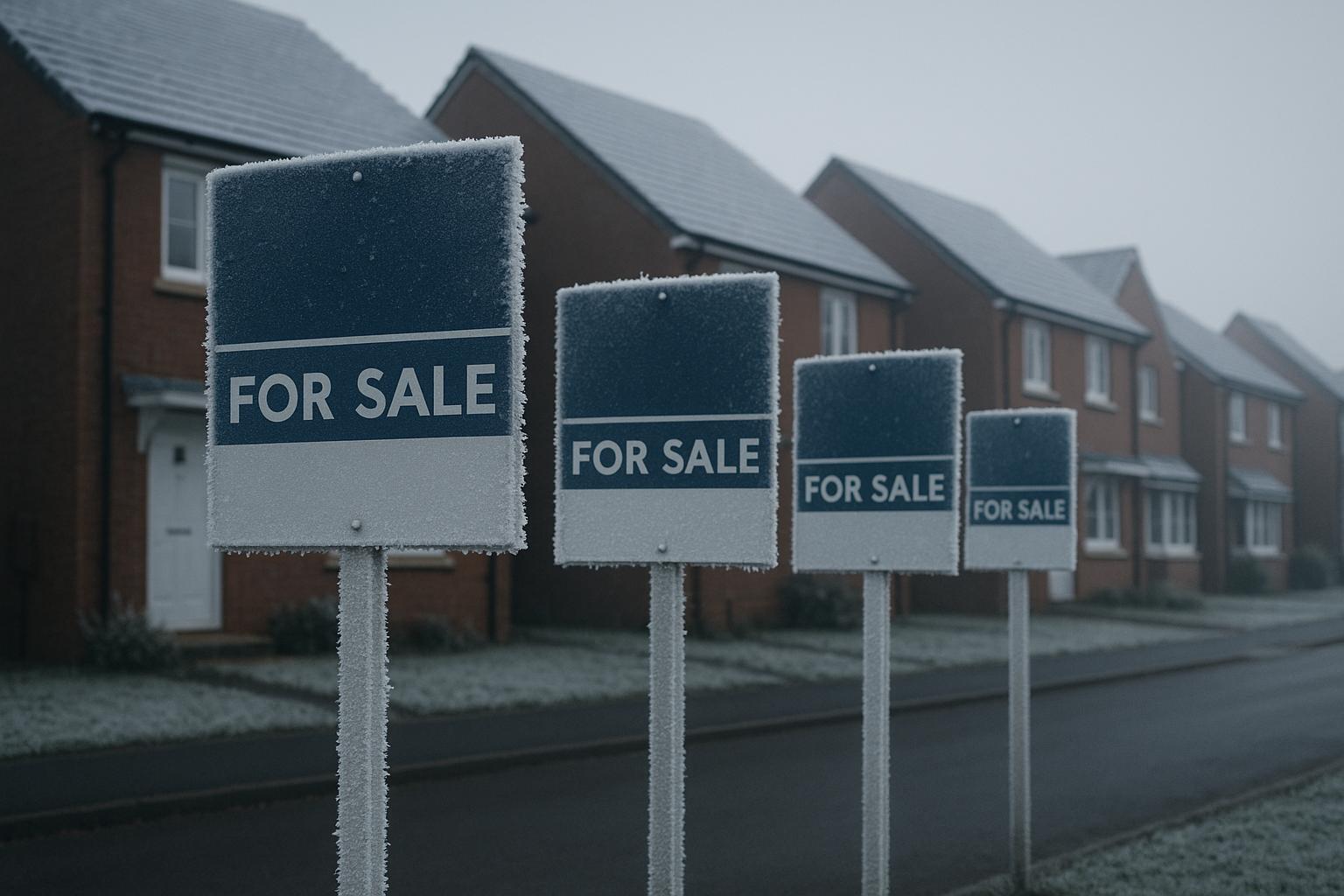Talk of significant property tax hikes ahead of the UK government's upcoming Budget has created a pronounced chill in the housing market. Last week, TV presenter Kirstie Allsopp described the market as effectively ‘dead’ ahead of Chancellor Rachel Reeves’s speech slated for 26 November. This perception stems from widespread rumours that the government is planning sweeping tax reforms targeting property owners, which is already impacting buyer behaviour and sales activity.
According to estate agents particularly in London, around 20% of prospective buyers have withdrawn from ongoing purchases since late August after speculation intensified over potential tax rises. Zoopla data reveals a 4% decline in enquiries for homes valued at £500,000 or above over the past month compared with the same period last year. The crux of the uncertainty surrounds proposals reportedly under consideration to scrap stamp duty in favour of a new annual property tax on homes valued over £500,000. Additionally, there are suggestions that homeowners of properties worth £1.5 million or more could become liable for capital gains tax on profits when selling. Rachel Reeves is also thought to be contemplating council tax reforms and requiring landlords to pay National Insurance contributions on rental income.
For sellers, this challenging market environment presents difficult choices: hold out for an acceptable offer, significantly reduce asking prices to attract buyers, or temporarily withdraw properties from sale until post-Budget conditions become clearer. Amy Reynolds, an estate agent from Antony Roberts in Richmond, advises sellers to consider local market activity. “If similar properties that are slightly cheaper are selling, then a price reduction will work. If nothing is moving and the area is cautious, taking the home off the market and making improvements can help future sales,” she said. Price adjustments vary widely, with some sellers needing to reduce asking prices by 2% to 10% depending on local comparables and the property type. Research from London estate agent Hamptons shows over two-thirds of homes sold this summer went for less than the initial asking price.
Property expert Phil Spencer highlights the psychological challenge sellers face, noting that “it's human nature to see your home as better than others on the market, but pricing it slightly lower than comparable homes can attract more viewings and offers.” Those keen to sell swiftly are also advised to look beyond price to buyer reliability—prioritising purchasers who are ‘chain-free’ or demonstrably ‘proceedable,’ meaning they have their finances firmly in order and are serious about completing the transaction.
The timing of a sale is critical, with November and December generally regarded as the poorest months to list property due to the Christmas lull. Rightmove data underlines February and March as peak months for putting homes on the market. Given these seasonal patterns and the late Budget timing, many sellers might find strategic advantage in withdrawing temporarily and returning to the market early next year. As Ms Reynolds puts it, “We know buyers are waiting for the Budget, and the current environment isn’t a sellers’ market. The market may worsen before improving, so a long-term approach may be necessary.”
Those opting to wait have the opportunity to enhance their home’s appeal. Decluttering, fresh decorating, and improving kerb appeal—such as maintaining windows, roofs, gardens, and frontages—can make a significant difference, according to Angela Kerr from the HomeOwners Alliance. Sellers should also time their property photographs carefully to avoid signalling prolonged market presence with off-season or dated images.
For chain-free buyers who do not need to sell first, the advice is to remain proactive. “Many are waiting for the Budget to see what doom and gloom might unfold, but if you can afford to move now, you’re less likely to face competition,” says Ms Reynolds. However, Mr Spencer advises caution, noting that with more homes listed than buyers, purchasers are in a strong negotiating position and should take their time.
Separately, the Autumn Budget, announced recently by Chancellor Rachel Reeves, confirmed some tax changes that reinforce these market dynamics, particularly for landlords and second home buyers. The stamp duty surcharge on additional properties is set to rise from 3% to 5%, effective from 31 October 2024, a move intended to ease pressure on first-time buyers by discouraging speculative property purchases. This increase means higher tax on purchases of second homes—ranging from 5% on homes up to £250,000, moving up to 17% on values exceeding £1.5 million. Meanwhile, capital gains tax rates overall have increased, with the lower rate rising from 10% to 18% and the higher rate from 20% to 24%. These changes affect most asset types and align capital gains tax rates on property sales with these new thresholds. Notably, the rates for landlords selling properties remain unchanged at 18% and 24%, respectively.
The Chancellor’s measures, while designed to shore up public finances and promote housing market fairness, are adding to perceptions of an uncertain and restrictive property environment. This confluence of tighter tax regimes, market caution, and consumer reticence may well prolong the current downturn in activity until clearer post-Budget signals emerge.
📌 Reference Map:
- Paragraph 1 – [1], [4]
- Paragraph 2 – [1], [4], [6]
- Paragraph 3 – [1]
- Paragraph 4 – [1]
- Paragraph 5 – [1]
- Paragraph 6 – [1], [7]
- Paragraph 7 – [1]
- Paragraph 8 – [1]
- Paragraph 9 – [1]
- Paragraph 10 – [2], [3], [4], [5], [6], [7]
Source: Noah Wire Services
